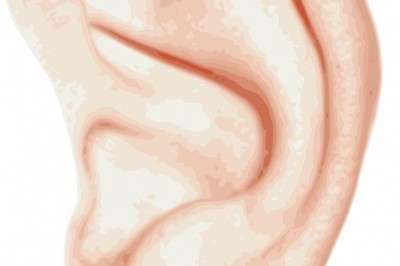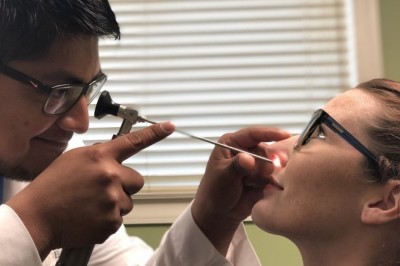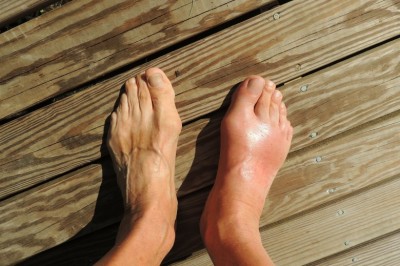What are Salicylates? Could Salicylates be Zapping Your Energy and Making You Feel Ill?
Salicylates occur naturally in many plant foods, acting as a plant hormone. The compounds are also manufactured synthetically and used to make painkilling drugs (aspirin and ibuprofen are the most well-known), flavoring, solvents, certain skin care products, perfume fixatives and preservatives.
Salicylate Sensitivity
A portion of the population may be sensitive to salicylates, much in the same way one may be sensitive to a food. A person with salicylate sensitivities may be able to tolerate certain foods and products that contain the compounds but not others.
Meanwhile, salicylates have a cumulative effect in the body, meaning that a person may be able to tolerate a small amount but will experience symptoms after excessive exposure. Even consuming a salicylate-containing food cooked, versus raw, can change the effect it may have.
Allergy-Like ... Sometimes Contradictory ... Symptoms
If a sensitivity is present, a person may experience allergy-like symptoms that range from mild to life-threatening anaphylactic shock. However, salicylates can cause a reaction that first stimulates then depresses the central nervous system. So a person may feel both lethargy and hyperactivity as a result.
Brand Names of Common Salicylate-Containing Drugs
Following is just a partial list of drugs that contain salicylates in the United States, according to the Mayo Clinic:
- Acuprin 81
- Amigesic
- Anacin Caplets and Tablets
- Aspirin Regimen Bayer Adult Low Dose
- Aspirin Regimen Bayer Regular Strength Caplets
- Bayer Childrens Aspirin
- Bufferin Caplets and Tablets
- Disalcid
- Extra Strength Bayer Aspirin Caplets and Tablets
- Mobidin
- Mono-Gesic
- Norwich Aspirin
- P-A-C Revised Formula
- Regular Strength Ascriptin
- Salflex
- Salsitab
- Sloprin
- St. Joseph Adult Chewable Aspirin
- Tricosal
- Trilisate
- ZORprin
Other symptoms may include:
- Wheezing and trouble breathing
- Headaches
- Ear infections
- Changes in skin color, itching, rash or hives
- Mouth ulcers or rash
- Nasal congestion, coughing
- Sinusitis
- Swelling of the hands, feet, eyes and face
- Stomach pain
- Trouble concentrating
- Nasal polyps
- Cognitive and perceptual disorders
How Do I Know if Im Sensitive?
If you have been experiencing any of the above symptoms and are unable to explain the cause, an elimination diet can help you determine if salicylates are to blame.
With an elimination diet, you eliminate foods and products that contain salicylates (or only consume them in very low levels), then keep track of your symptoms. If your symptoms disappear, theres a good chance that youre sensitive to salicylates.
If you suspect you are sensitive, this doesnt mean that you can never eat a food that contains the compound. Remember that some foods may affect you more than others, so you may need to experiment. Other factors also add to the complication, making certain foods and parts of foods less potentially problematic than others:
-
Raw foods, dry foods and juices may contain more salicylates than cooked food. -
The highest levels of salicylates are found just under the skin of certain fruits and vegetables, and in the outer leaves of vegetables. -
Salicylate levels decrease the riper a food gets.
In other words, if you are sensitive to salicylates in a certain food, you may find you can tolerate it if it is very ripe, peeled and cooked. (You should not consume any salicylates if there is a risk of a severe reaction, of course.)
Where, Specifically, are Salicylates Found?
Salicylates are very widespread and occur in high levels in blueberries, almonds, green peppers, cinnamon and many other foods.
The chart at the end of the article gives a comprehensive look at which foods are high (and low) in these compounds.
Salicylates are also part of many products, including:
- Acne products and wart or callus removers
- Fragrances, cosmetics and bubble baths
- Shampoos and conditioners
- Herbal remedies
- Lozenges
- Topical creams
- Mouthwash and mint-flavored toothpaste
- Shaving cream
- Sunscreens and tanning lotions
- Muscle pain creams
You should also watch out for the following ingredients if you are trying to avoid salicylates:
- Aspirin
- Acetylsalicylic acid
- Artificial food colorings or flavorings
- Azo dyes
- Benzoates (preservatives)
- Benzyl salicylate
- Beta-hydroxy acid
- Choline salicylate
- Disalcid
- Ethyl salicylate
- Isoamyl salicylate
- Magnesium salicylate
Though anyone can be sensitive to salicylates, it is more likely to occur in people with moderate to severe asthma or chronic rhinosinusitis. It is also more likely to affect older adults and those with worsening asthma.
If you are sensitive to these compounds, your best bet to avoiding any uncomfortable symptoms is to avoid any trigger foods and/or products that may contain salicylates, and only attempt to reintroduce them if you and your physician are confident they will not cause a severe reaction.
Source: Allergy Dietitian























